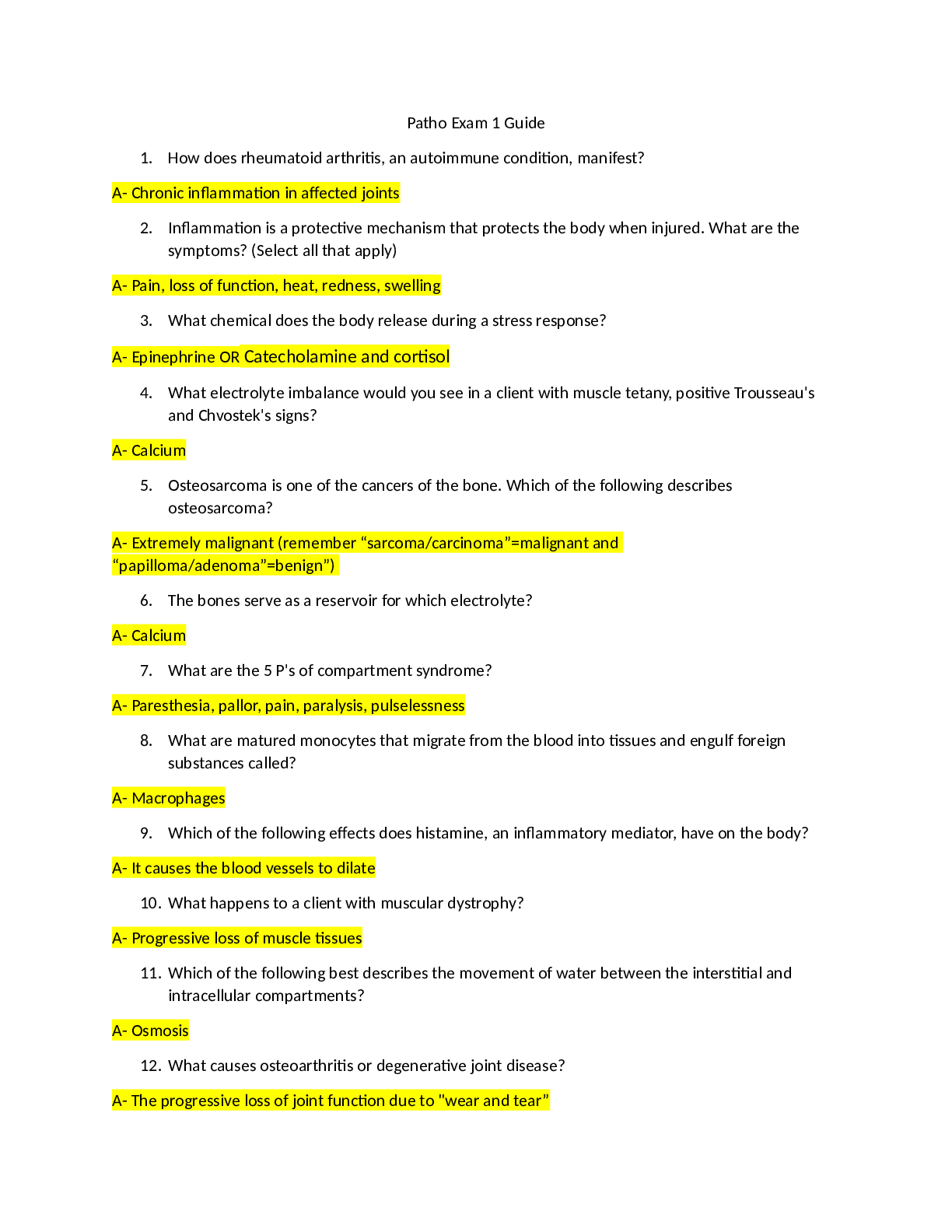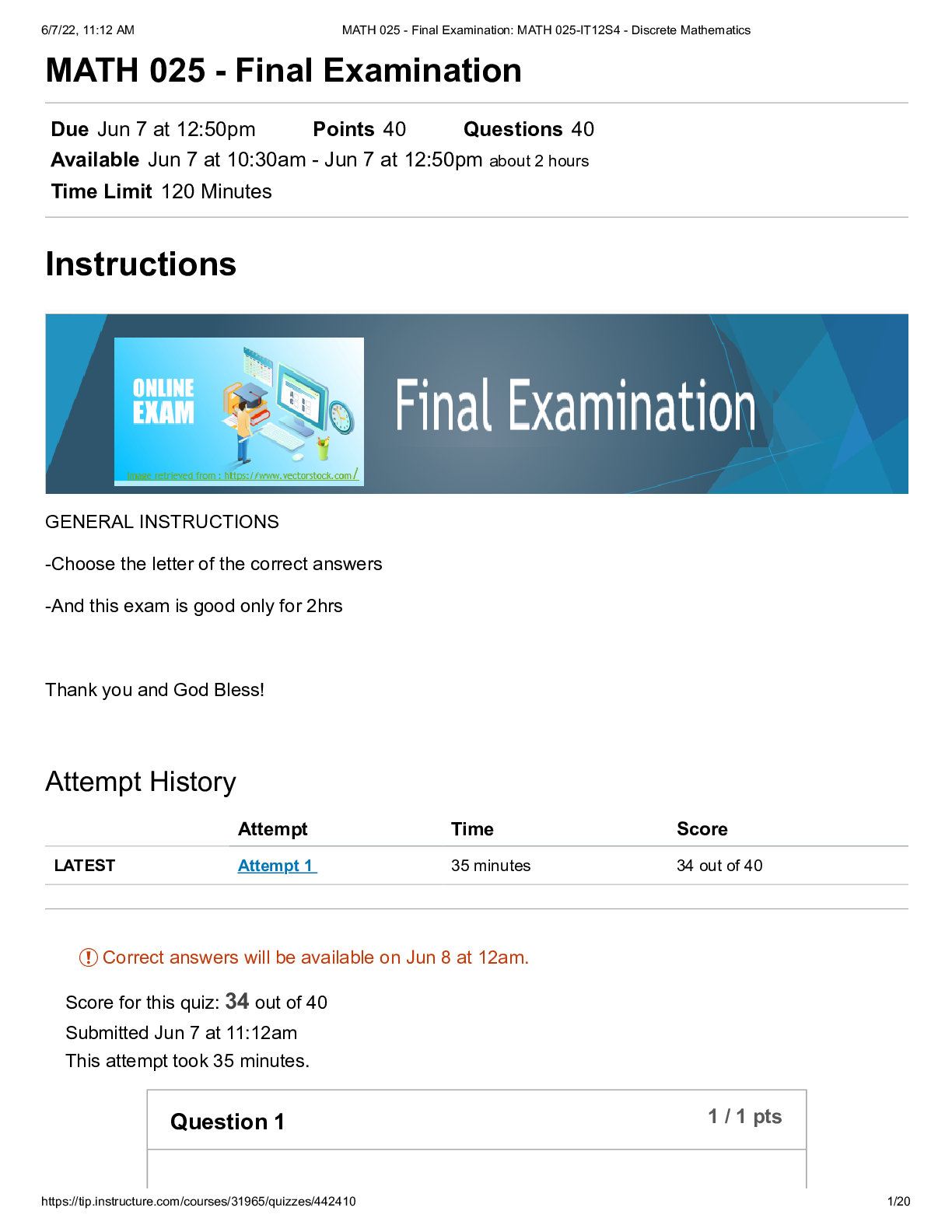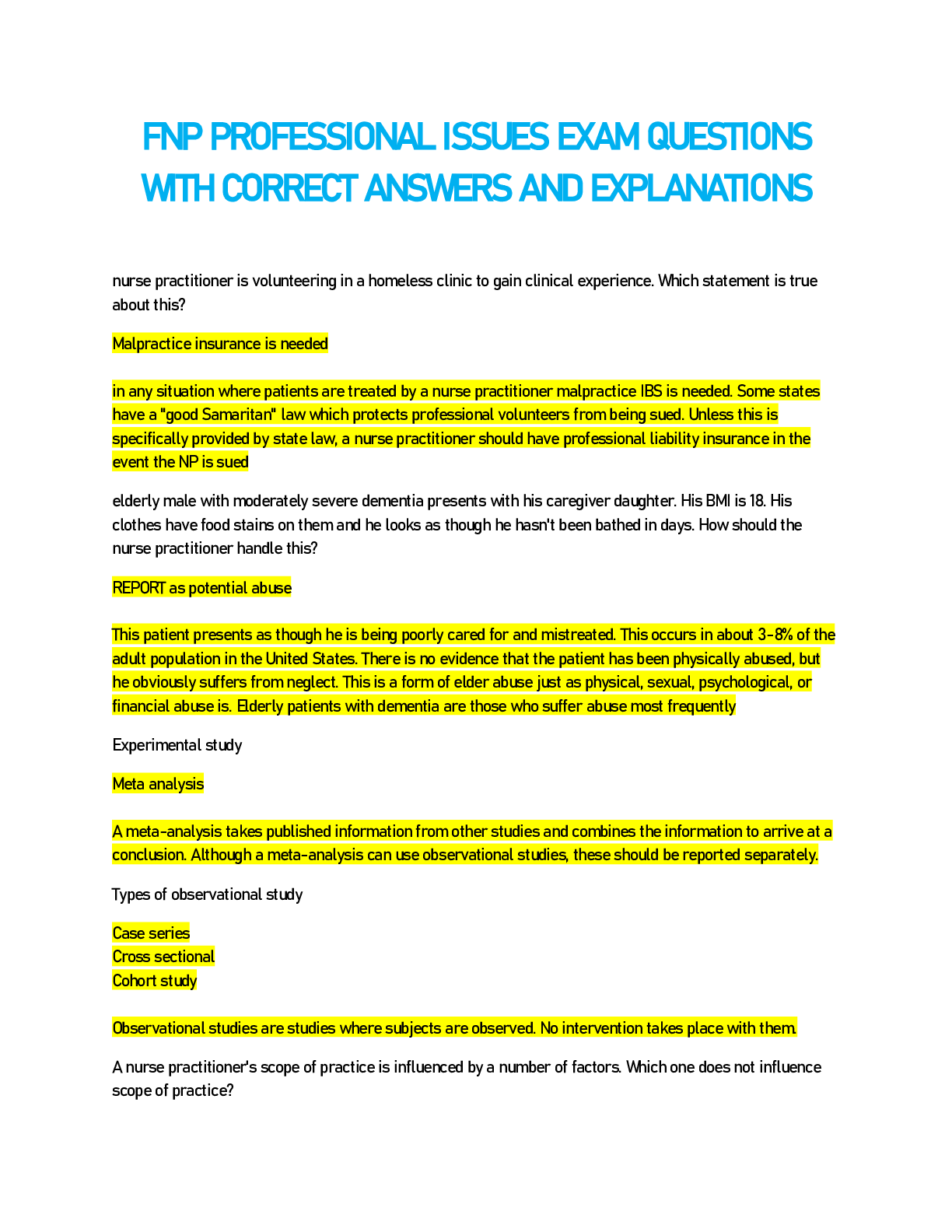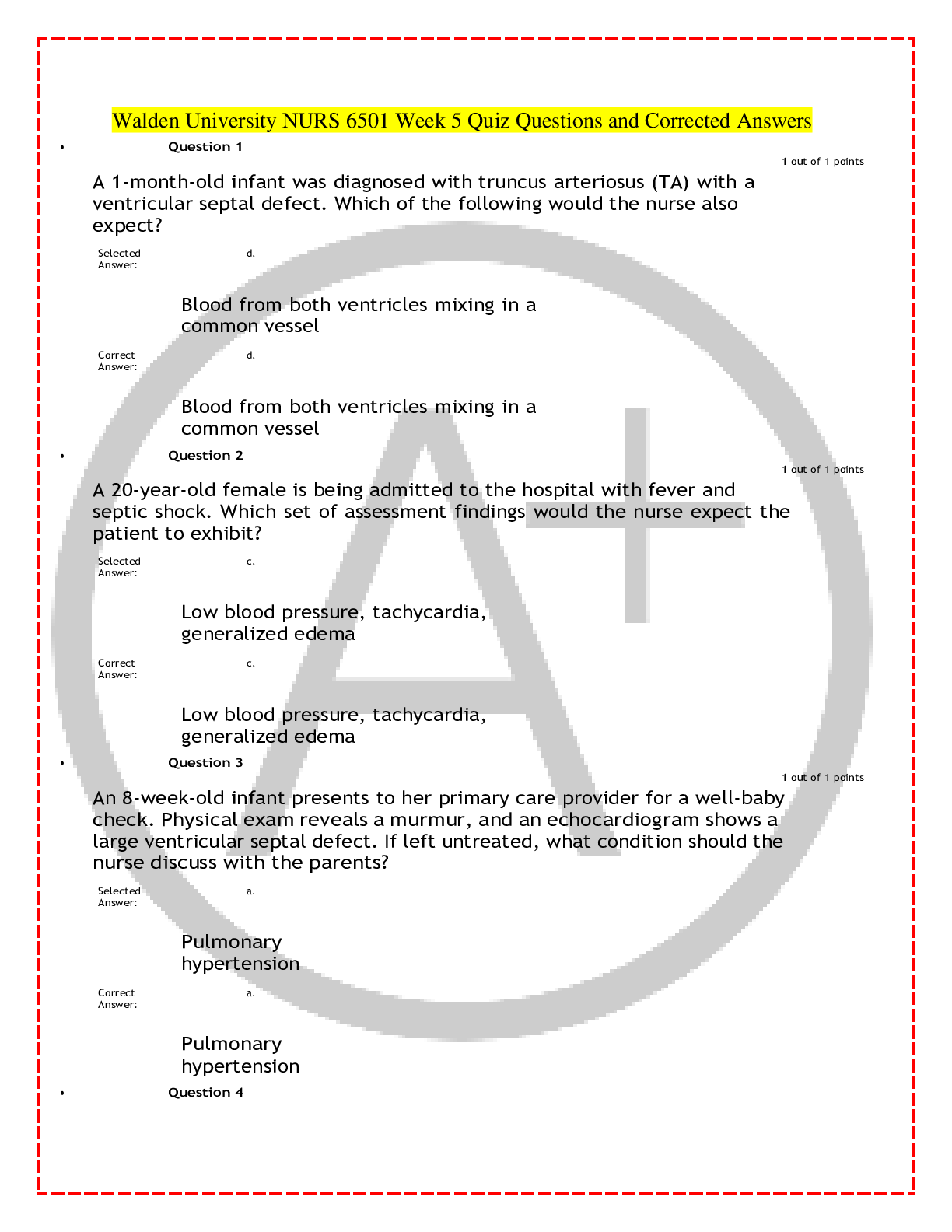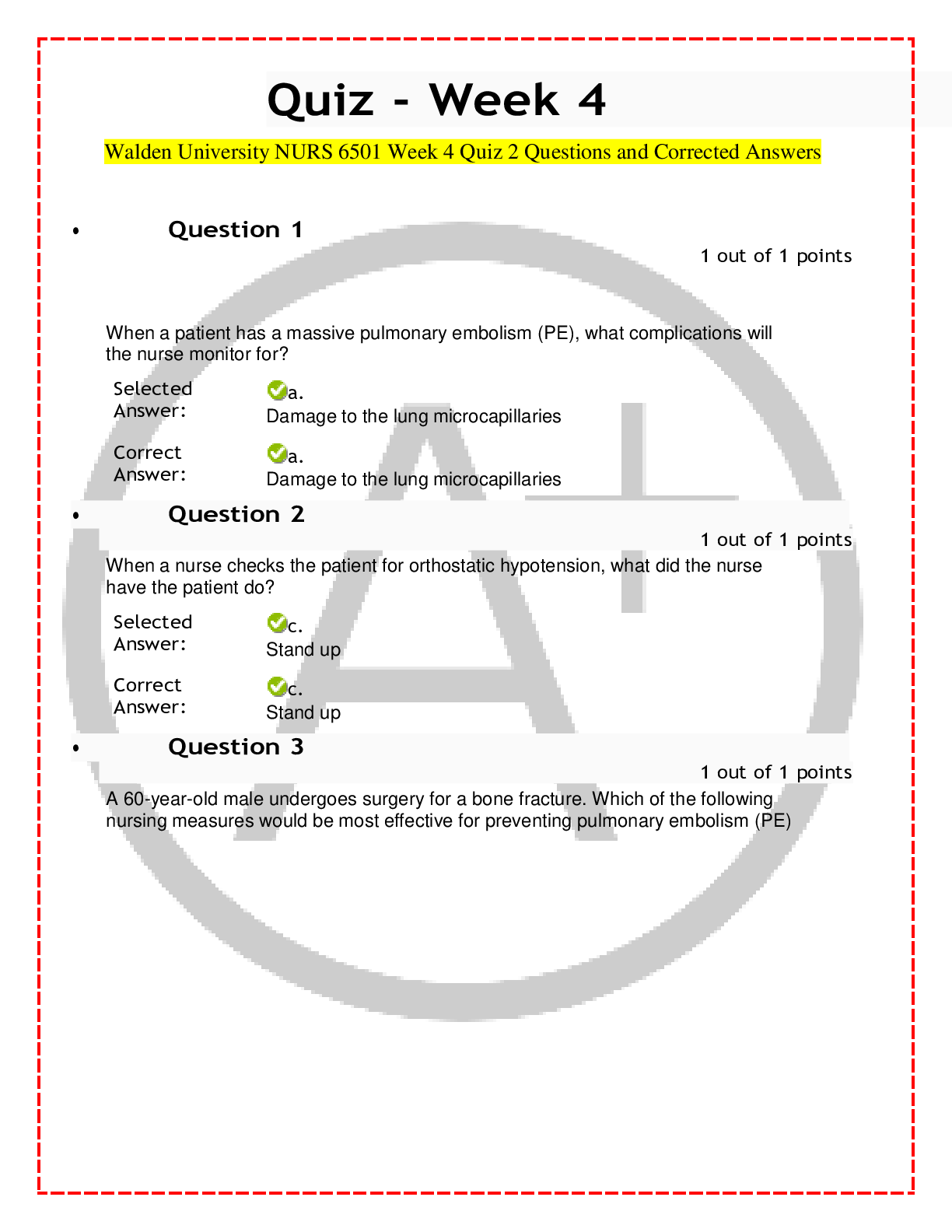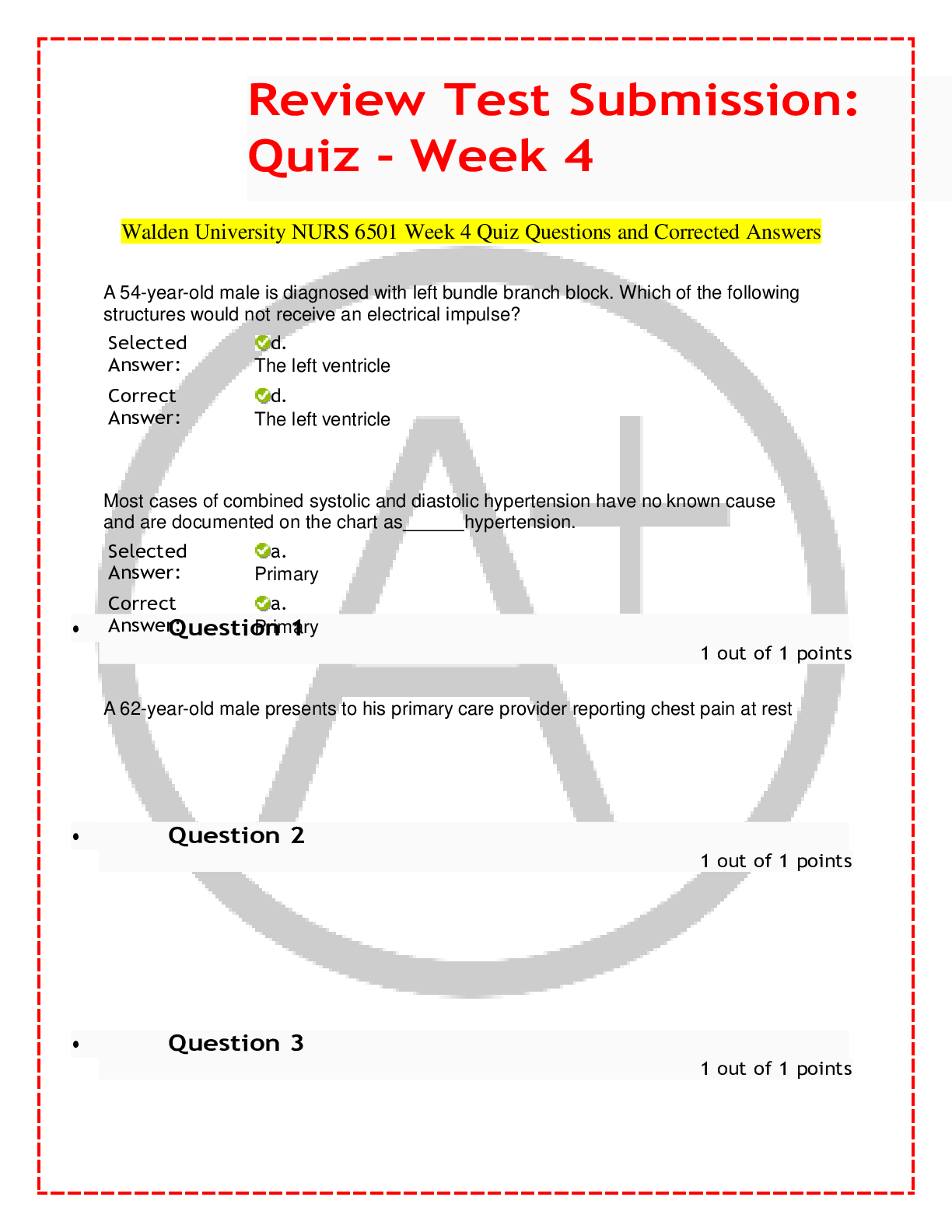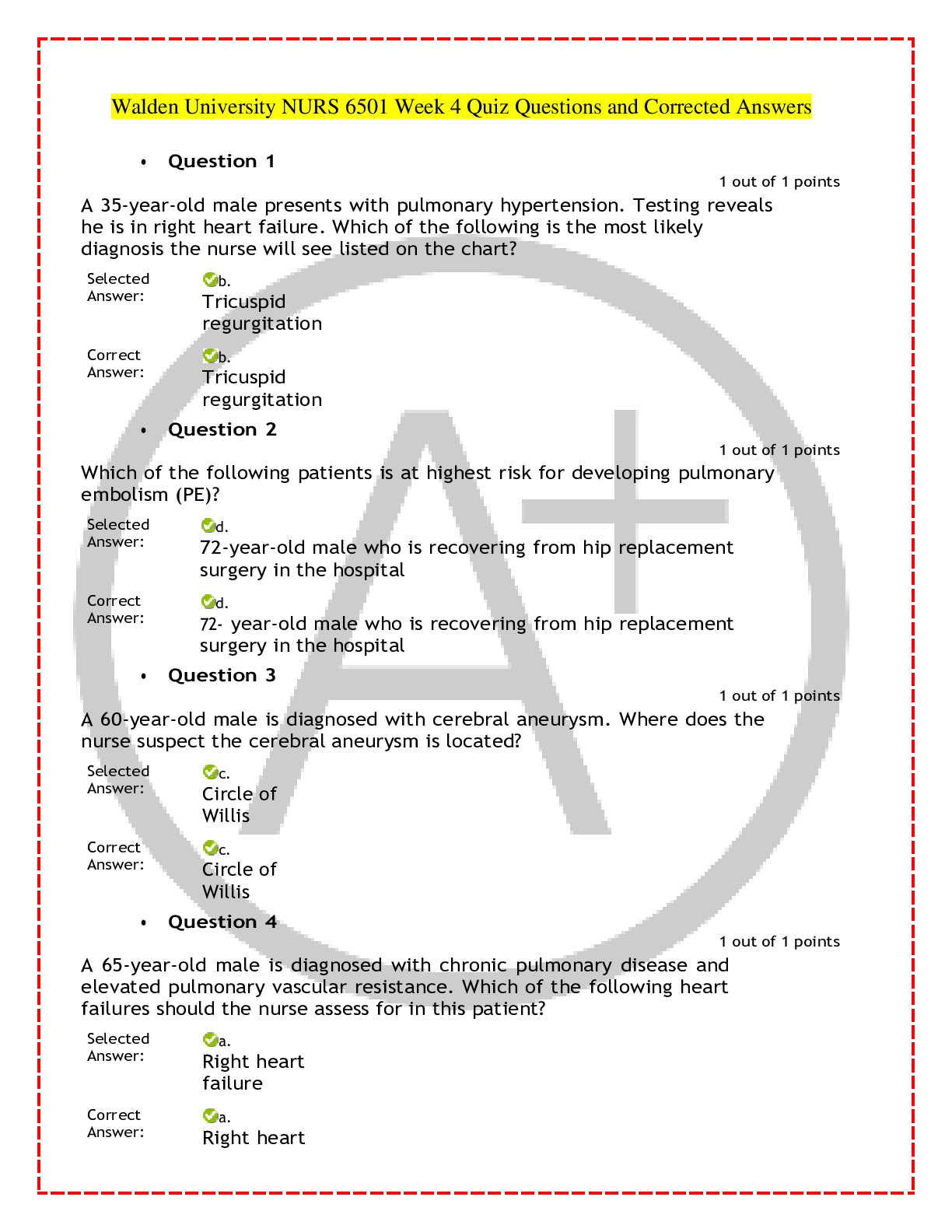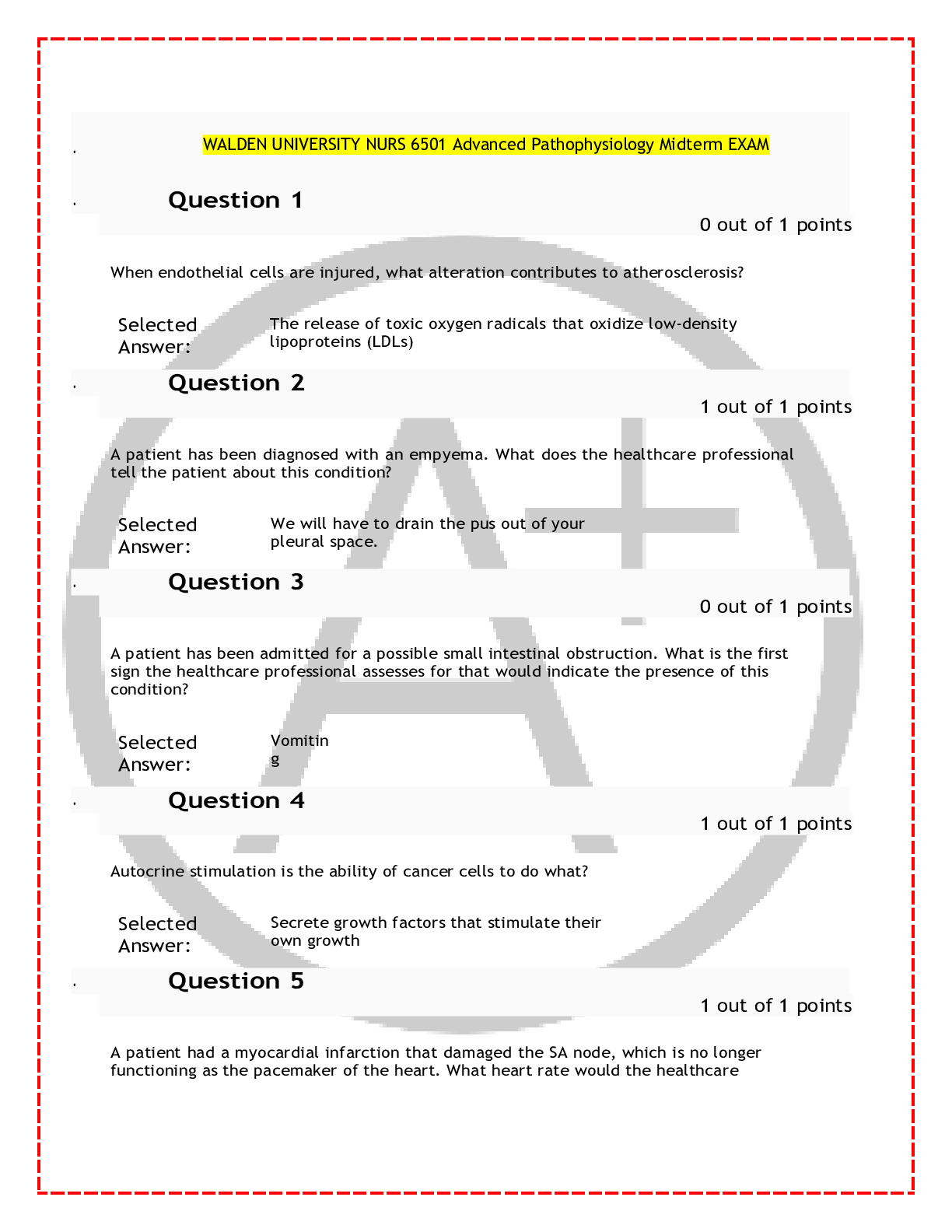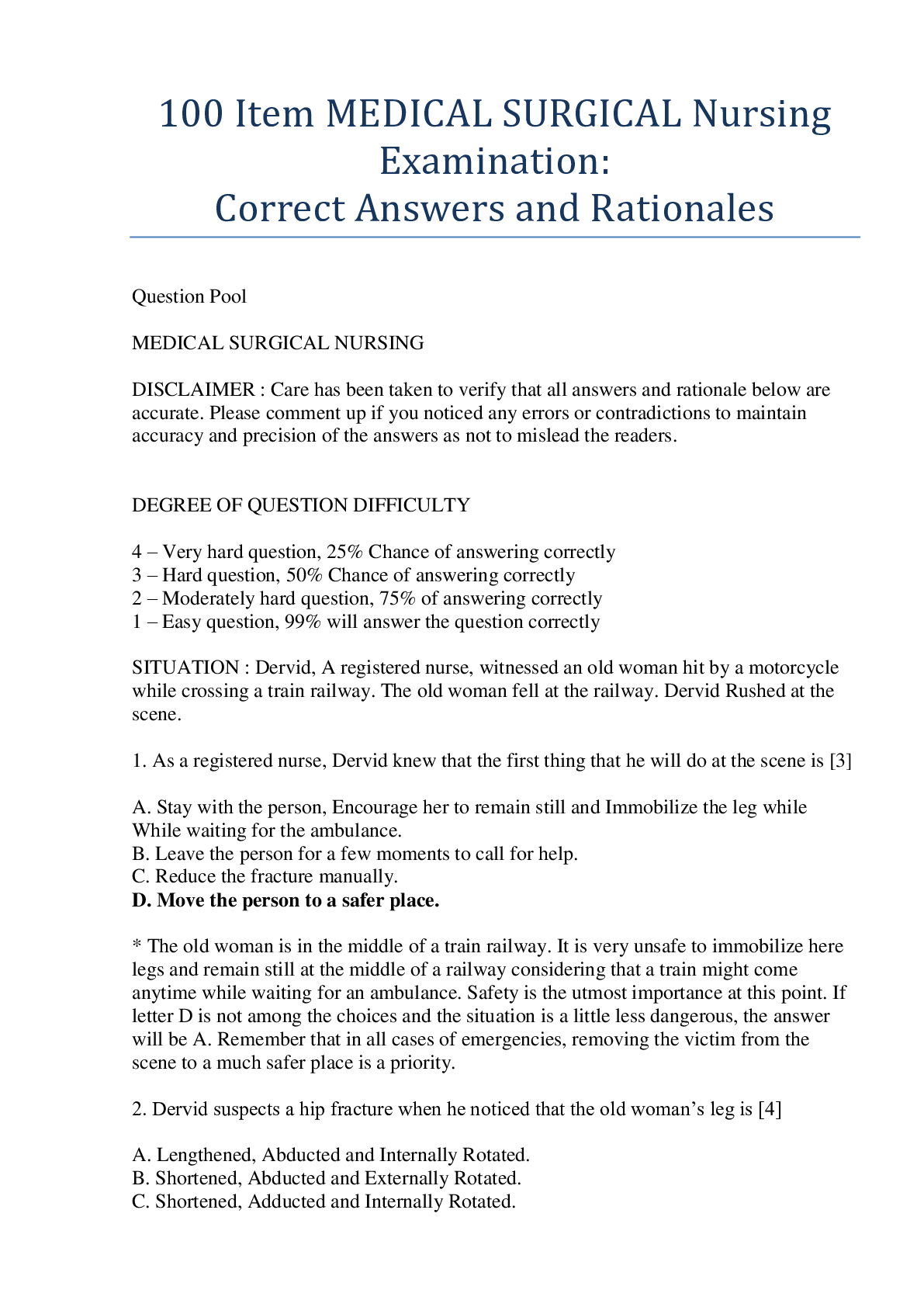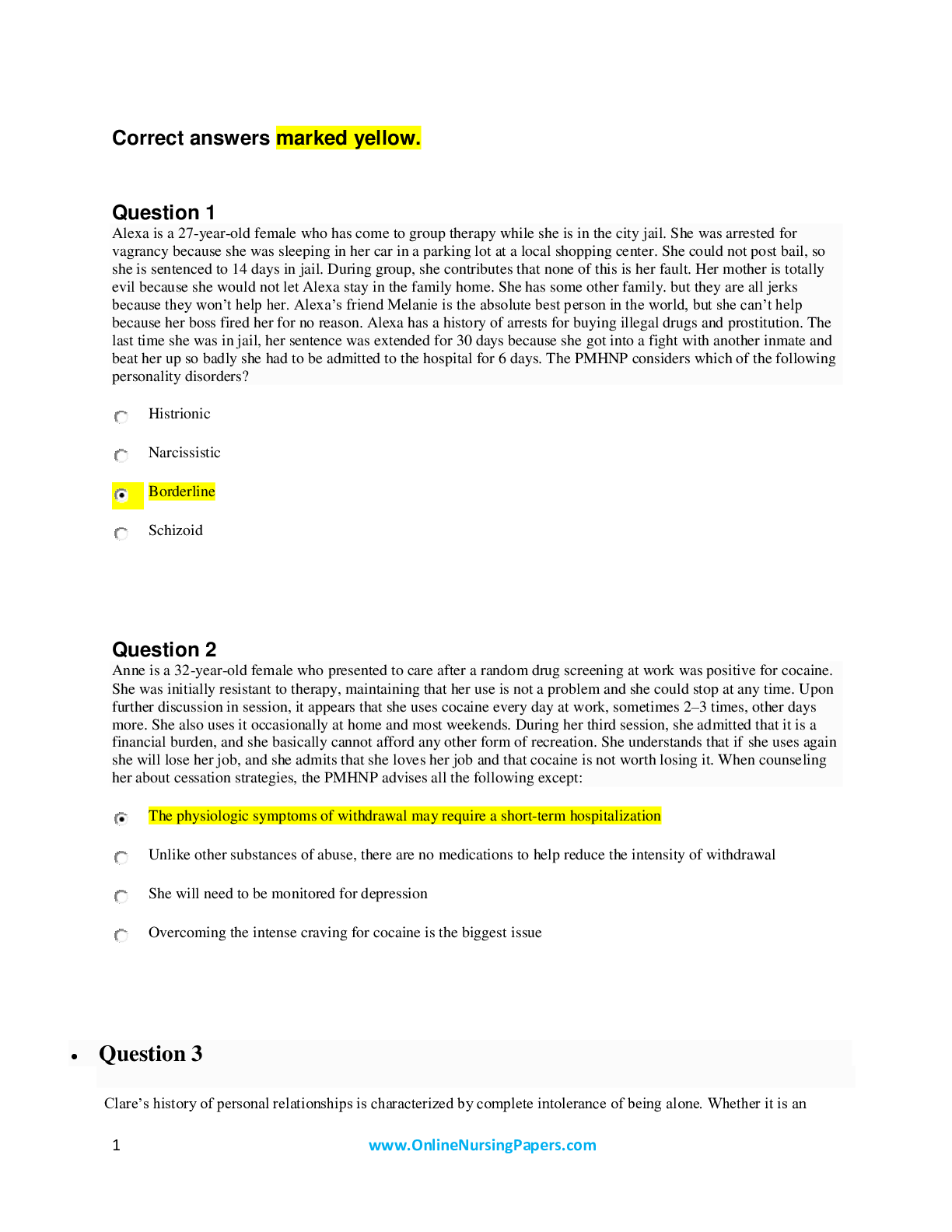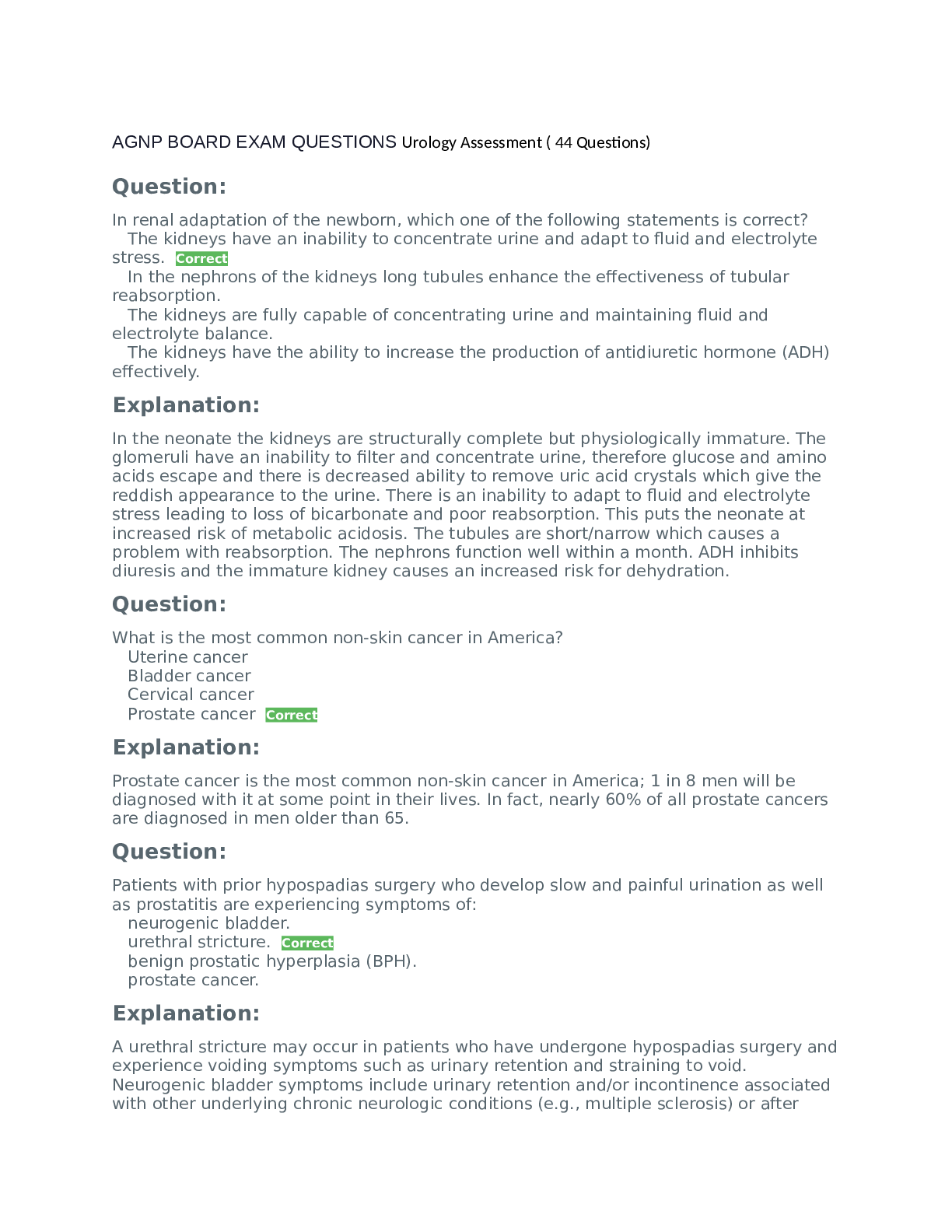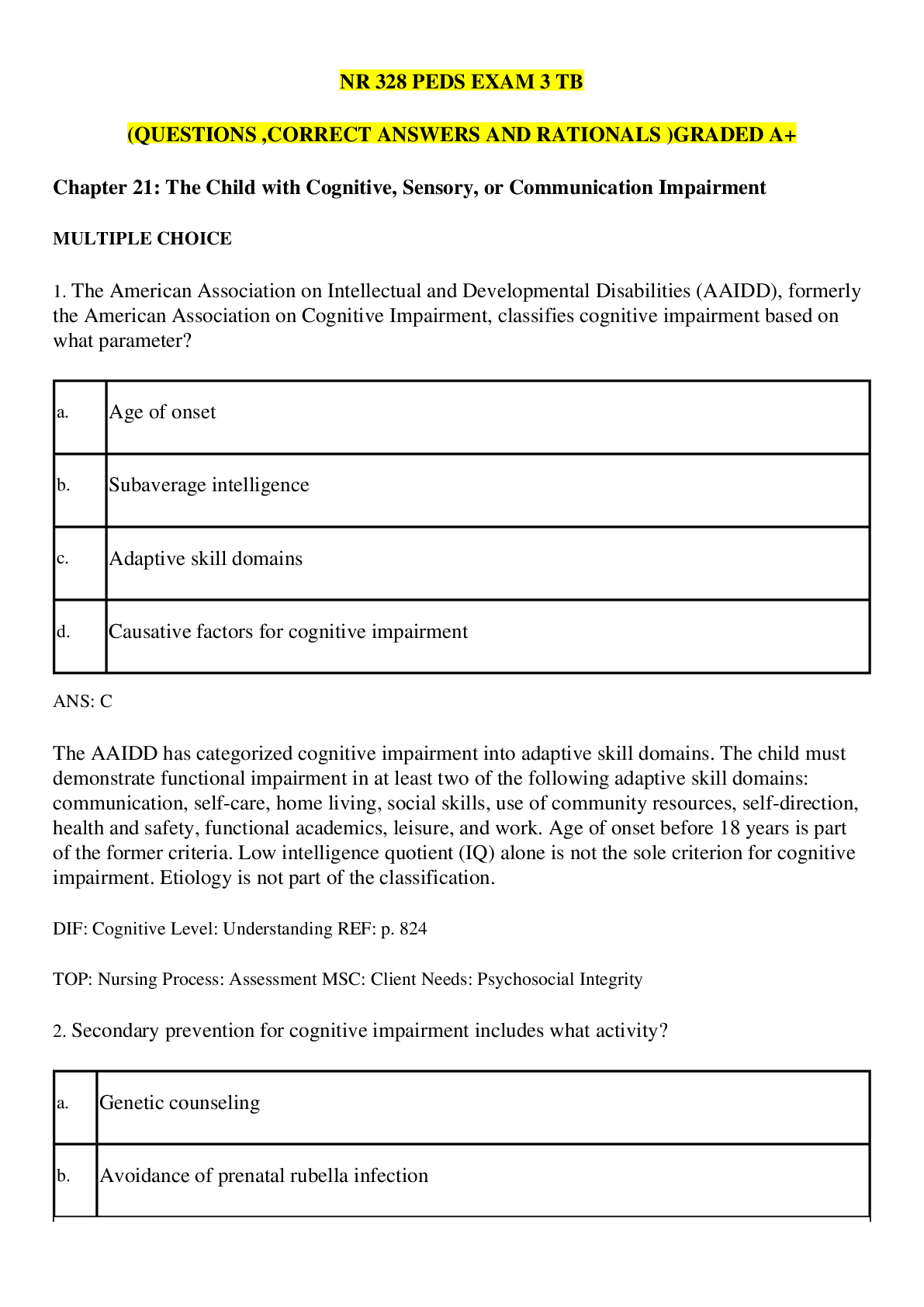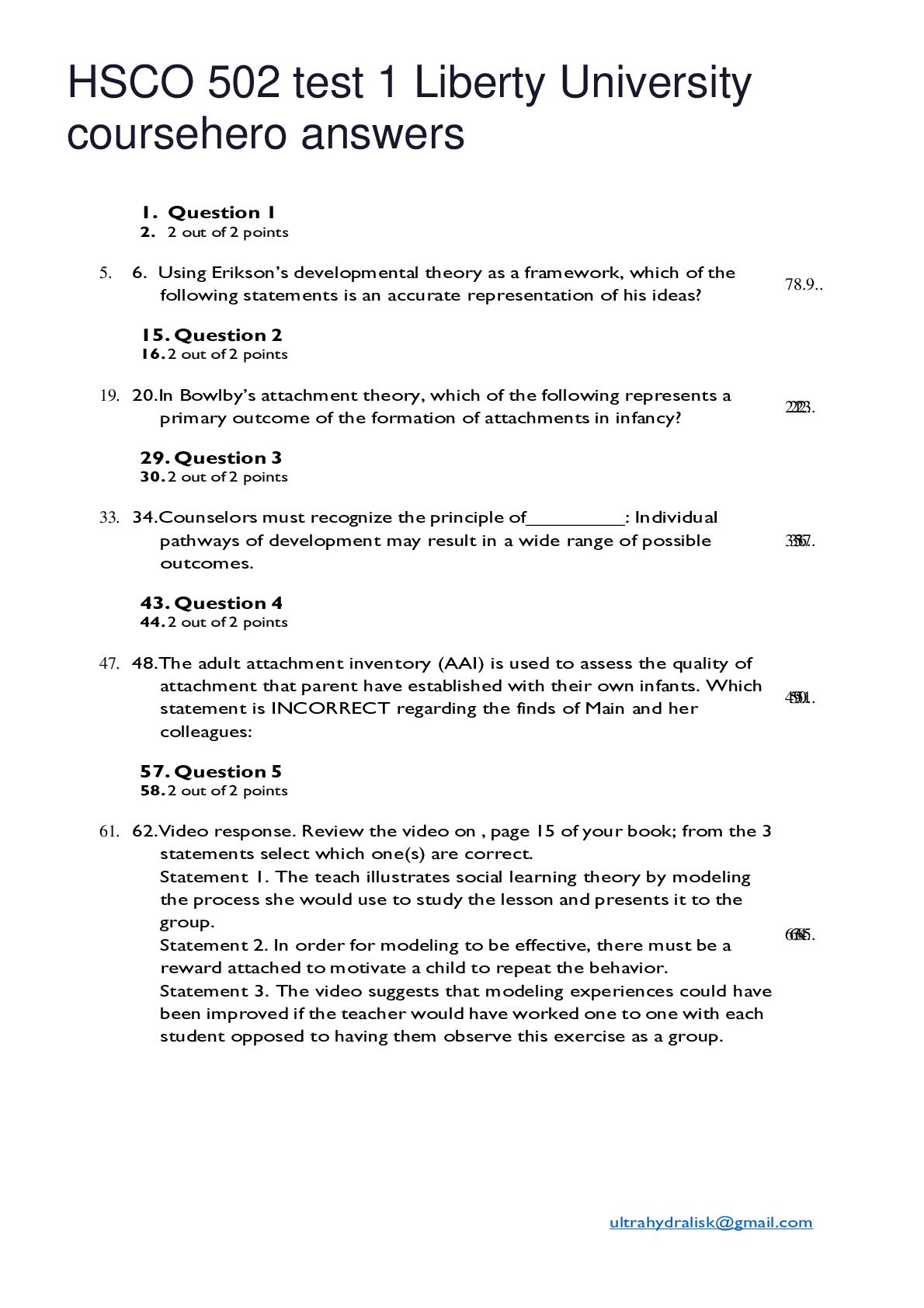*NURSING > EXAM > APEA 3P Exam Prep- Sexual Health Questions with Correct Answers and Explanations (All)
APEA 3P Exam Prep- Sexual Health Questions with Correct Answers and Explanations
Document Content and Description Below
APEA 3P Exam Prep- Sexual Health Questions with Correct Answers and Explanations A patient being treated for trichomoniasis receives a prescription for metronidazole. What instructions should she be ... given? Take this medication with food Do not take this medication if you are pregnant Take this medication on an empty stomach Alcohol should be avoided when taking this medication D. Metronidazole may be associated with a disulfiram reaction when mixed with alcohol. Advice that should be given to all patients who take metronidazole is to avoid alcohol entirely while this medication is being taken. Additionally, alcohol should be avoided for 24 hours after the last dose of medication. The disulfiram reaction is characterized by fever, abdominal pain, nausea, vomiting, and headache. This reaction is called the “Antabuse” reaction. The risk of HIV transmission is increased: when other STDs are present. in females. when patients are aware of their HIV status. in patients with diabetes. A. There are several risk factors for HIV transmission. Viral load is likely the greatest risk factor. The presence of STDs increases the risk of HIV transmission. Specifically, the presence of chlamydia increases the risk of acquiring HIV by 5 times. Lack of circumcision increases the risk of transmission. A patient requests screening for HIV after a sexual exposure. What are CDC’s recommendations for screening for this patient? There are no recommendations for screening. She should be screened today, with repeat screening at 4-6 weeks, and 3 months. She should be rescreened in 6-12 months She only requires screening if she develops symptoms of HIV B. She does require further screening because a negative initial result does not insure that she is not infected. This signifies that she has not seroconverted at this time. The period within 3 months after exposure is termed the “window period” and a negative screen must be confirmed. If a 4th generation assay is used and the screen is negative 3 months after the last exposure, and there is no concern for coinfection with hepatitis C at the time of HIV exposure, she is considered to be negative. HIV screening should be performed in any patient who develops symptoms consistent with HIV after an exposure. [Show More]
Last updated: 2 years ago
Preview 1 out of 11 pages

Buy this document to get the full access instantly
Instant Download Access after purchase
Buy NowInstant download
We Accept:

Reviews( 0 )
$10.00
Can't find what you want? Try our AI powered Search
Document information
Connected school, study & course
About the document
Uploaded On
Oct 27, 2022
Number of pages
11
Written in
Additional information
This document has been written for:
Uploaded
Oct 27, 2022
Downloads
0
Views
70

